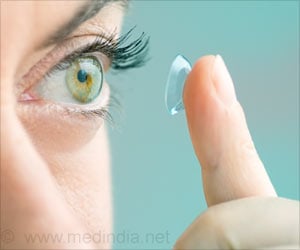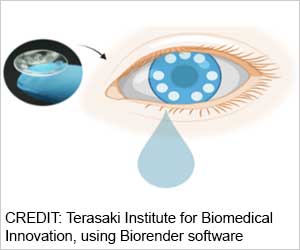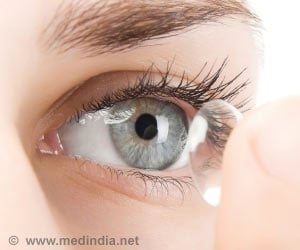A smart intraocular lens that can be implanted in the eye to detect Alzheimer’s disease has been developed
A smart intraocular lens that can be inserted into the eye to diagnose Alzheimer’s has been developed for the first time in Korea.
The Korea Institute of Machinery and Materials (President Sang-jin Park, hereinafter referred to as KIMM), an institute under the jurisdiction of the Ministry of Science and ICT, has succeeded in developing an intraocular implant that can diagnose Alzheimer’s, a degenerative brain disease, in its early stages through joint research with Yonsei University, Yonsei University College of Medicine, Yongin Severance Hospital, and Gangnam Severance Hospital, South Korea (1✔ ✔Trusted SourceReal-time and label-free biosensing using moiré pattern generated by bioresponsive hydrogel
Go to source).
What is an Intraocular Implant?
An intraocular lens implant is an artificial replacement for the lens of your eye. It’s part of the surgery to fix cataracts.When the antibody-bound hydrogel pattern reacts with the target biomarker, it contracts. The target biomarker is then detected utilizing changes in the moiré signal caused by the hydrogel pattern narrowing due to the contraction response overlapping with the specified reference grid. Detection with a moiré signal is substantially more sensitive than other approaches that directly detect changes in the hydrogel pattern.
In addition, unlike standard biosensors, the moiré signal-based biomarker detection approach may detect biomarkers directly without the use of electrochemical or fluorescent labels. One advantage of this approach is that it can be implanted within the body because it does not require external power or a light source.
Can we Predict Alzheimer’s Disease Through the Eye Lens?
Alzheimer’s Disease (AD) is a common dementia problem in the elderly population. The two main hallmarks of AD are tau protein and amyloid beta protein. The relevant investigations on AD suggest that these proteins are also seen in the eye. There are many tests and imaging modalities used for AD diagnosis. But these techniques are still unable to predict the disease effectively. In this regard, the lens of the eye may help in diagnosing AD. Therefore, a reliable technique for measuring the lens or retina must be selected (2✔ ✔Trusted SourceCan we predict Alzheimer's Disease through the eye lens?
Go to source).
Reference:
- Real-time and label-free biosensing using moiré pattern generated by bioresponsive hydrogel - (https://www.sciencedirect.com/science/article/pii/S2452199X22004741)
- Can we predict Alzheimer’s Disease through the eye lens? - (https://www.heighpubs.org/hceo/ijceo-aid1031.php)
Source-Medindia













